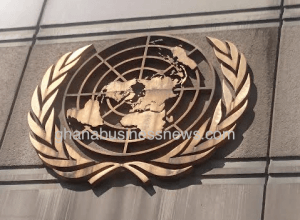UN Committee chastises section of Ghanaian media
 The United Nations Committee on the Rights of the Child (UN-CRC) has chastised a section of the Ghanaian media for consistent abuse of the rights and dignity of children in the country.
The United Nations Committee on the Rights of the Child (UN-CRC) has chastised a section of the Ghanaian media for consistent abuse of the rights and dignity of children in the country.
“Several media houses and journalists abuse and negatively portray children to danger and ridicule, especially those who had been sexually abused. The disrespect of the privacy and dignity of children in the media must stop,” Mrs Yasmeen Muhamad Shariff, UN-CRC Vice Chairperson stated in Geneva, Switzerland.
Mrs Shariff was part of an 18-member Independent Experts who cross-examined the Ghanaian delegation headed by Nana Oye Lithur Minister of Gender, Children and Social Protection during the 69th Session of the UN-CRC.
Ghana presented the Third, Fourth and Fifth Combined Consolidated Report on implementation of the Convention on the Rights of the Child (CRC).
The UN-CRC Vice Chairperson also expressed concern about lack of space for children in the media, “there are limited children centered news and information in the media, which makes it difficult for children to access information”.
Mrs Shariff called for regular update of the capacity of media houses and journalists on reporting issues concerning children.
Concerning access to information, the Committee was also concerned about the exposure of children to harmful information, such as violence and pornography, through the use of the Internet and other media outlets.
The Committee urged Ghana to take all necessary legal and other measures, including advisory campaigns directed to parents, guardians and teachers, and co-operate with Internet service providers in order to protect children from being exposed to harmful materials, such as violence and pornography through the Internet and other media outlets.
Responding to some of the issues raised, Nana Oye Lithur explained that the Ghana Journalists’ Association and the National Media Commission have established code of ethics which regulates and gives operational direction on reporting on children.
The Gender Minister said the ministry will continue to engage more with journalists and media house owners on issues concerning children in particular, and gender in general.
Nana Oye Lithur disclosed that the ministry had already rolled out training and engagement programme with journalists.
On exposure of children to harmful material, she explained that it was a criminal offence in Ghana; stressing that there was legislation that sought to protect children from the use of inappropriate materials.
She said the 1992 Constitution protects children from accessing inappropriate information such as pornographic materials…“Article 21 (f) of the Constitution guarantees the right to information and further protects children from physical and moral hazards.
“The Children’s Act also mandates parents are to protect the child from neglect, discrimination, violence, abuse, exposure to physical and moral hazards and oppression”.
Nana Oye Lithur who is also a human rights advocate, noted that the Cinematography Act, 1961 (Act 76) also protects children against morally hazardous information from the mass media.
She, however, admitted that in spite of legislation, children still access harmful materials and this has attracted public complaints.
The Gender Minister noted that a study conducted by the Department of Children on the use of the Internet by school children in the Accra Metropolis did indicate that some children use the Internet for harmful purposes such as pornography, violent materials and fraud.
According to the study, 14 per cent of children indicated they had used the Internet for pornography.
The study also indicated that some Internet cafés have regulatory measures to monitor children’s use of the Internet, whilst a significant majority did not have such measures.
The study findings further showed that the Internet café is not the only source for children to access pornographic and other harmful materials. Seventy-one per cent of children sampled, go to the Internet café to access the Internet, 14 per cent use it at home, and 10 per cent use it at school.
A percentage less than four access the Internet at a parent’s or guardian’s office, or through mobile phones and personal laptops. Even though the study was only carried out in Accra, it gives an indication of a bigger problem nationwide.
The UN-CRC is the body of 18 Independent Experts that monitors the implementation of the Convention on the Rights of the Child by its State parties.
It also monitors implementation of two Optional Protocols to the Convention, on involvement of children in armed conflict and on the sale of children, child prostitution and child pornography.
On December 19, 2011, the UN General Assembly approved a third Optional Protocol on a communications procedure, which will allow individual children to submit complaints regarding specific violations of their rights under the Convention and its first two optional protocols. The Protocol entered into force in April 2014.
Source: GNA
